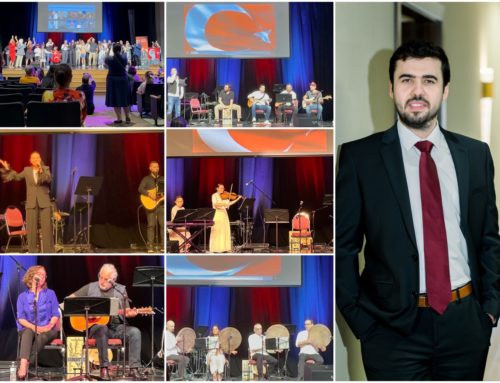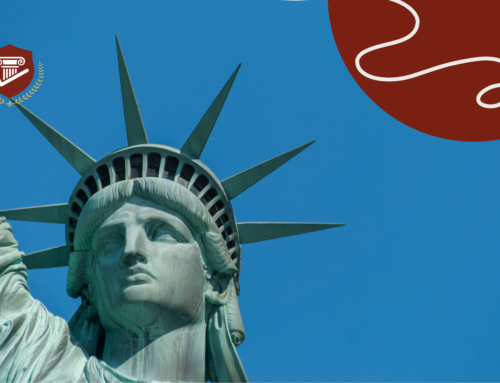
The E-2 nonimmigrant classification allows a national of a treaty country (a country with which the United States maintains a qualifying international agreement – U.S. Department of State’s Treaty Countries) to be admitted to the United States when investing a substantial amount of capital in a U.S. business.
Who May File for Change of Status to E-2 Classification?
If the treaty investor is currently in the United States in a lawful nonimmigrant status, they may file Form I-129 to request a change of status to E-2 classification. If the desired employee is currently in the United States in a lawful nonimmigrant status, the qualifying employer may file Form I-129 to request a change of status to E-2 classification on the employee’s behalf.
How to Obtain E-2 Classification if Outside the United States?
A request for E-2 classification may not be made on Form I-129 if you are physically outside the United States. Interested parties should refer to the U.S. Department of State website for further information about applying for an E-2 nonimmigrant visa abroad. Upon issuance of a visa, the person may seek admission at a United States port of entry as an E-2 nonimmigrant.
General Qualifications of a Treaty Investor.
To qualify for E-2 classification, the treaty investor must:
- Be a national of a country with which the United States maintains a treaty of commerce and navigation;
- Have invested, or be actively in the process of investing, a substantial amount of capital in a bona fide enterprise in the United States; and
- Be seeking to enter the United States solely to develop and direct the investment enterprise. This is established by showing at least 50% ownership of the enterprise or possession of operational control through a managerial position or other corporate device.
A substantial amount of capital is:
- Substantial in relationship to the total cost of either purchasing an established enterprise or establishing a new one
- Sufficient to ensure the treaty investor’s financial commitment to the successful operation of the enterprise
- Of a magnitude to support the likelihood that the treaty investor will successfully develop and direct the enterprise. The lower the cost of the enterprise, the higher, proportionately, the investment must be to be considered substantial.
A bona fide enterprise refers to a real, active, and operating commercial or entrepreneurial undertaking which produces services or goods for profit. It must meet applicable legal requirements for doing business within its jurisdiction.
Period of Stay.
Qualified treaty investors and employees will be allowed a maximum initial stay of two years. Requests for extension of stay in, or changes of status to, E-2 classification may be granted in increments of up to two years each. There is no limit to the number of extensions an E-2 nonimmigrant may be granted. All E-2 nonimmigrants, however, must maintain an intention to depart the United States when their status expires or is terminated. An E-2 nonimmigrant who travels abroad may generally be granted, if determined admissible by a U.S. Customs and Border Patrol Officer, an automatic two-year period of readmission when returning to the United States.
Family of E-2 Treaty Investors and Employees.
Treaty investors and employees may be accompanied or followed by spouses and unmarried children who are under 21 years of age. Their nationalities need not be the same as the treaty investor or employee. Spouses and children may seek E-2 nonimmigrant classification as dependents and, if approved, generally will be granted the same period of stay as the employee. If the family members are already in the United States and are seeking changes of status to or extensions of stay in an E-2 dependent classification, they may apply by filing a single Form I-539, Application to Change/Extend Nonimmigrant Status, with fee. Spouses of E-2 workers in valid E-2 or E-2S status are considered employment authorized incident to status, except for spouses of long-term investors in the Commonwealth of the Northern Mariana Islands (E-2 CNMI Investors) who are required to apply for employment authorization additionally.
The E-2 treaty investor or employee may travel abroad and will generally be granted an automatic two-year period of readmission when returning to the United States. Unless the family members are accompanying the E-2 treaty investor or employee at the time the latter seeks readmission to the United States, or the family members separately travel abroad and return to the United States within the new readmission period, the new readmission period will not apply to the family members. To remain lawfully in the United States, family members must carefully note the period of stay they have been granted in E status and apply for an extension of stay before their own validity expires.
I.S. Law Firm has helped thousands to immigrate to the U.S. and to establish businesses in the U.S. Don’t hesitate to contact us via phone at +1 (703) 527-1779 or email: [email protected].






